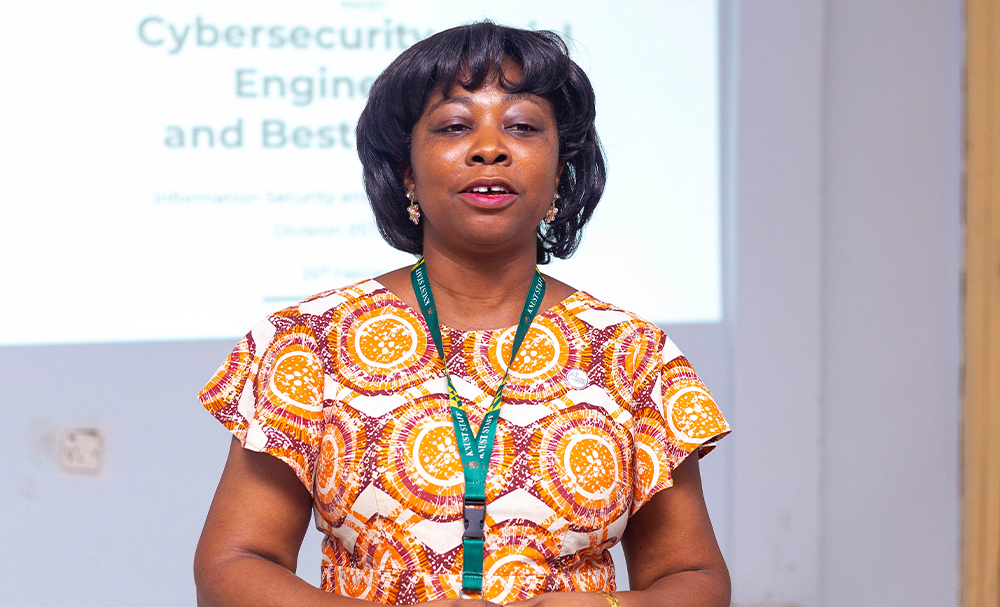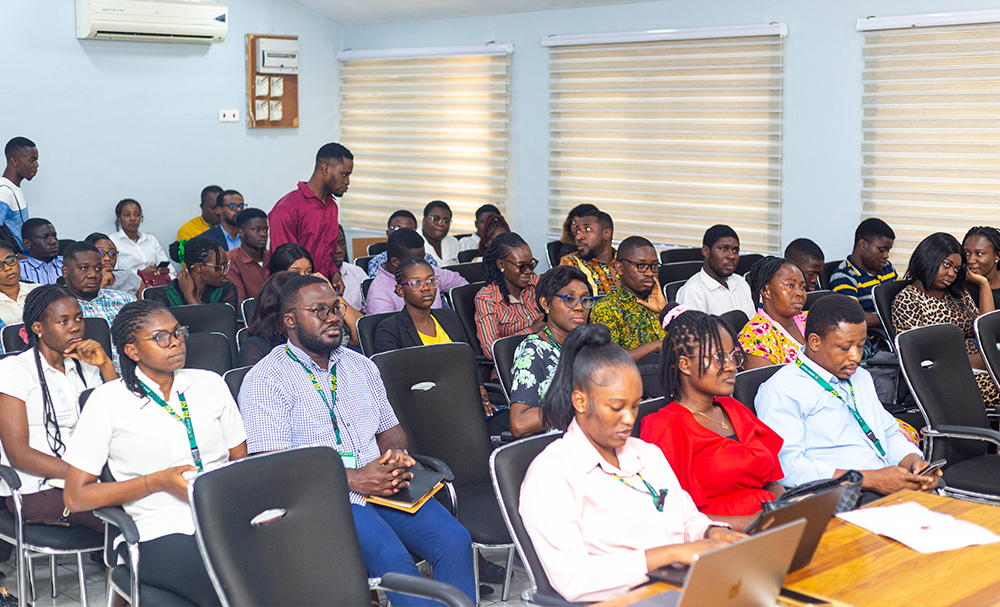The staff of the Directorate of Students' Affairs (DoSA) at the Kwame Nkrumah University of Science and Technology (KNUST), Kumasi, have benefitted from a training session on cybersecurity, social engineering, and best practices.
The session, organised by the Information Security and Technology Assurance Division (ISTAD) of the University Information Technology Services (UITS) aimed to equip staff with essential knowledge and skills to navigate the evolving digital landscape while protecting sensitive information from cyber threats.
Discussions focused on best practices for cybersecurity, potential risks associated with social engineering, and proactive measures to mitigate digital vulnerabilities.

, noted the significance of cybersecurity awareness in an era where digital engagement is integral to the university's operations.
"We connect with our students on multiple platforms, and because of that, our systems of teaching and operations have evolved. However, we do not share our digital space only among ourselves but also with outsiders. Even within our community, integrity levels vary, which sometimes distorts the security of our cyberspace," she stated.
Professor Nkansah further noted that while digital tools are designed to enhance lives, they can also be exploited for malicious activities.
"Technology is supposed to make our lives easier and better, but sometimes it can be used for harmful purposes. That is why UITS finds it prudent to update us on the changing cybersecurity landscape and the potential harm if we are not careful," she added.

The Deputy Director of Information Security and Technology Assurance Division (ISTAD) of UITs, Mr. Phanuel Seli Kwadwo Asense emphasised the need for cybersecurity awareness in preventing security breaches and safeguarding the university’s digital assets.
He urged participants to avoid oversharing personal information on the internet, always verify the source of communications, and refrain from giving confidential information without authorisation.
He also advised staff to develop strong cybersecurity habits such as using strong passwords, enabling two-factor authentication, and staying informed about digital threats.

















